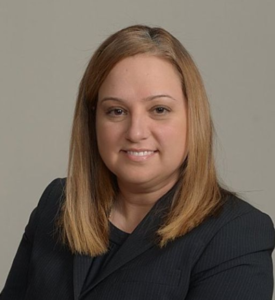By Maria Sampalis, OD, of corporateoptometry.com


DIFFERENCES BETWEEN MENTORS AND SPONSORS
It is integral to understand the difference between mentors and sponsors to identify and seek a sponsor in the first place. The simplest way to distinguish the two is that while a mentor provides feedback and guidance to you in finding more opportunities, a sponsor is someone in a powerful position who can actually create opportunities for you.
While a mentor helps you map out your career trajectory, providing constant feedback about where you can improve, a sponsor directly advocates for you, helping you reach more visibility among your organization’s leaders, advocating for you to have a seat at the table, providing a voice for you when your ideas different and helping you move up in your career trajectory. Sponsors give you opportunities that mentors can’t because of their authority.
THE VALUE OF HAVING BOTH
There is value in both mentors and sponsors. The environment you work in plays a key role. Where a sponsor might advocate for you for that board seat or job promotion, the mentor can help you with weakness or areas of improvement. The mentor can help with your personal development and have you gain the trust of the sponsor to actively promote you. Each provides different value at different times in your career.
DIFFERENT WORKPLACES, DIFFERENT PROGRAMS
Many young ODs are employed and have goals that they would like to achieve. Whether it be having their own practice, taking on an industry role or building their own personal brand, a mentor within the organization can help with that. Many large organizations that employ ODs have programs established to promote personal and career growth. When seeking a job in optometry, these are good questions to ask: Does the employer have a formal program? Does it offer regular education and training opportunities? Have other ODs gone through the program and been promoted ?
As an OD that has their own practice whether private or sublease, it is a difference experience with a mentor or sponsor. The highs and lows of entrepreneurship can be overwhelming, so having a network that you can reach out to get business advise can be instrumental in your business success. Having a sponsor can help you get that contract that you wanted, on certain insurance panels or even open doors for additional practice acquisitions. According to the AOA’s Survey of Optometric Practice, many more women doctors owned practices in 2016 (39.1%) than in 2009 (20.5%), which indicates that there are more women who may be looking for the business guidance now. Sponsors can help escalate the discussion to sellers to want to choose you as the optimal buyer for their practice.
SPONSORSHIP COULD BE KEY TO MORE EQUAL PROFESSION
An article by Harvard Business Review, “A Lack of Sponsorship is Keeping Women From Advancing into Leadership,” explains the cause behind a deep disparity in leadership. While the growing awareness about women’s empowerment has put them on the receiving end of great mentorship, they still seriously lack a sponsor’s safety net compared to their male colleagues. Without female leadership in optometry, we are not able have diverse ideas to enhance our profession.
Sponsors do not only enhance one’s career satisfaction but often transfer power to other female ODs to continue to build and grow optometry. Moreover, only having mentorship can be detrimental to one’s career in the long run as mentors may only provide feedback, not opportunities. This can lead to being stuck in a feedback loop and growing complacent with it. The constant feedback can also translate into ‘correcting-everything-you-do,’ leading
to a lack of confidence in the receiver. We need a culture in optometry that applauds ODs questioning the norm and thinking outside the box.
FINAL THOUGHTS
The industry has some great informative conferences to help with career and personal development. Women In Optometry, for example, will be hosting its annual Women’s Leadership Conference on Tuesday, Nov. 2 in Boston. Stay tuned for more information.
If women are to make big moves in their career growth, both men and women in leading positions need to sponsor more women. There is a clear gender gap in this area that explains the lack of women leadership in pertinent roles.
As for my own experience, I have seen great achievements from other females in the industry who have been willing to help my business. Nine out of 10 partnerships have come from female-led organizations for my female-owned business. That should be eye-opening.
Let’s ask the hard questions and lift up the next generation of female ODs leaders to have a seat at the table!
Engage with Dr. Sampalis at Corporate Optometry.



